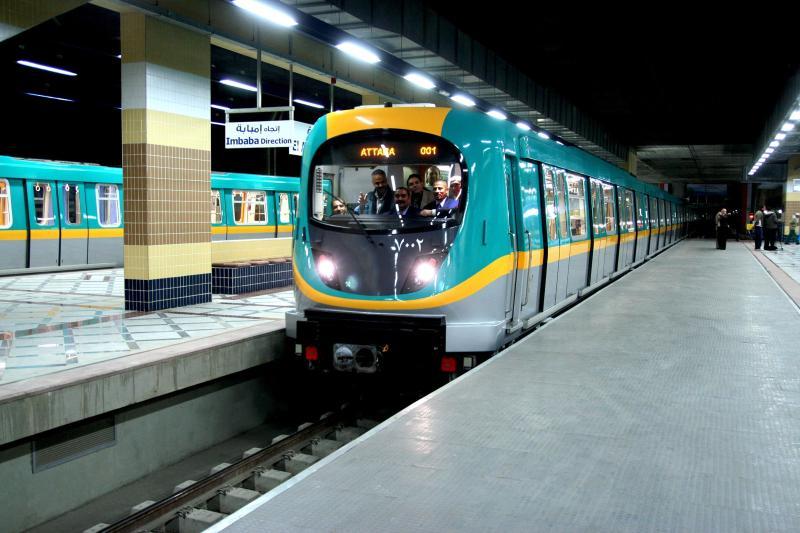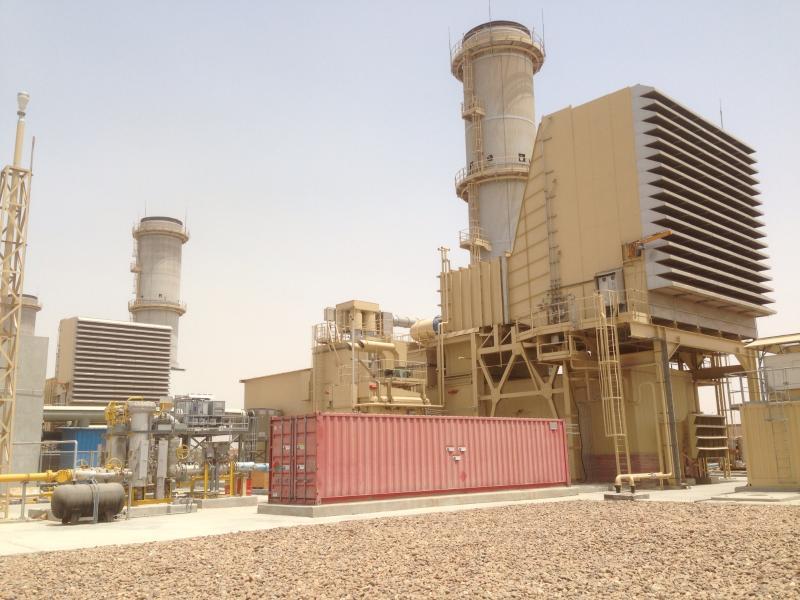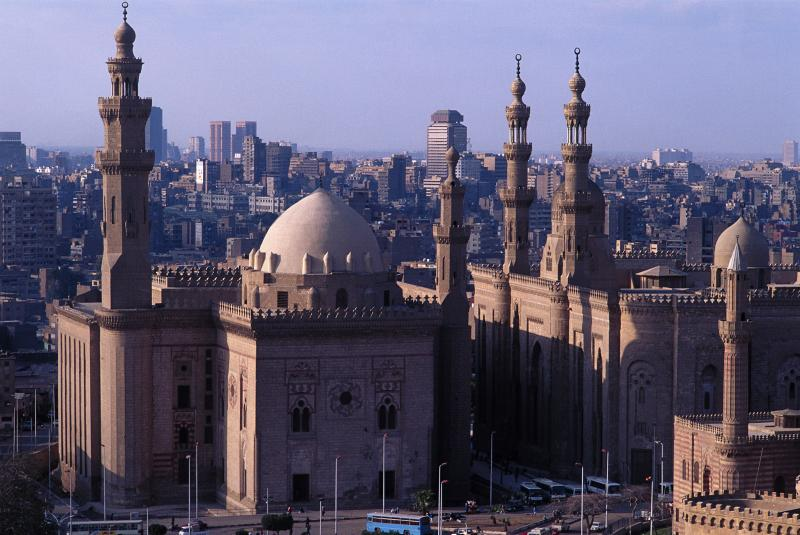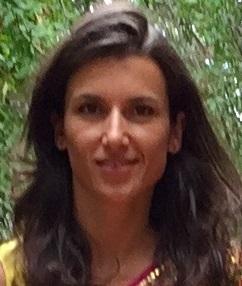From massive transport projects to loans for small businesses, the European Investment Bank has backed Egyptian development since 1979.
We all know Egypt’s history of great achievements from its ancient monuments to its place in Arabic culture. One feat that you might be unaware of is that Cairo built the first metro system in Africa.
Over the last decade, the Cairo Metro has received almost €1 billion in financing from the European Investment Bank and been one of 12 big Egyptian transport projects supported by the EU bank. It’s a continuation of the European Investment Bank’s major financing for Egypt over the past 40 years.
“It’s not the figures that count,” says Alfredo Abad, head of the European Investment Bank’s Cairo office. “We make a difference in people’s lives. We’ve supported maritime, road, railway and air transport throughout the country.”
EU policy drives EIB Egyptian development
All European Investment Bank projects in Egypt are aligned with EU policy and many benefit from an EU guarantee or grant. In the environmental and social sectors, the blending European Investment Bank loans with EU grants is crucial to:
- financial and social acceptance, because it cuts the need to recover cost through tariffs
- promoting sectors such as renewable energy, water and energy efficiency, which would otherwise lack sufficient private sector support
- correct market failures
- provide technical assistance and ensure solid project preparation that, in turn, allows the EU and the European Investment Bank to attract other financing from international financial institutions and private investors.

Cairo Metro Line 3 (Phase 3)
Transport has been at the centre of the European Investment Bank’s work in Egypt since its first operation there in 1979. Back then, the government of the Arab Republic of Egypt and the EU bank signed three financing agreements to support maritime transport, energy generation and investments by small and medium enterprises.
The first loan was to another world-famous Egyptian landmark, the Suez Canal. It supported a major expansion of the canal to allow tankers drawing 53 feet to transit the waterway. The project included dredging to deepen and widen the canal, civil engineering and maritime works, such as the removal of wrecks near the canal at Port Said and Suez.
This important debut project is paralleled by major financing over the last decade for Egyptian transport, including:
- Cairo Metro Line 3 Phase 3 (a loan of € 600 million)
- air traffic control (€50 million)
- Cairo Metro Line 1 upgrade and renovation (€350 million, signed in January 2019).
Why transport? It’s crucial for economic growth. Greater Cairo is one of the world’s mega-cities with a population of more than 20 million, where demand for mobility has greatly outpaced the capacity of public transport. Cairo Metro, the backbone of the city’s transport system, has helped to meet the demand—and reduced energy consumption and greenhouse gas emissions.
EIB Egyptian development in energy
Energy is also a story of the continuity of European Investment Bank lending to Egypt.
The bank’s second loan in 1979 backed the Egyptian Electricity Authority’s construction of the first phase of a 900 MW thermal power station at Shoubra El Kheima, the fourth-largest city in Egypt.
The European Investment Bank also supported its connection with the national network and the next phase of the project in 1984-1986.
Shoubra El Kheima was the first of 37 large energy-related projects financed by the European Investment Bank in Egypt, including:
- El Shabab Power Plant (2014)
- Giza North Power Plant I and II (2010, 2011)
- Cairo North Power Plant (2001)
- Nubariya Combined Cycle Power Plant (2002)
- Damietta Dual Fired Combined Cycle Power Station (1989).

El Shabab Power Plant
The Bank supported electricity transmission all over the country, financing:
- the Shoubra El Kheima interconnection (1984)
- Abu Zaabal-El Tabbin transmission (1989)
- Alexandria transmission (2010)
- the recent Egyptian Power Transmission Project, which upgrades and expands the Egyptian national power transmission network.
In the gas sector, the European Investment Bank financed the Cairo Gas Distribution Network (1991), the Upper Egypt gas pipeline (1998), Gasco pipelines (1999), and liquid natural gas plants in Damietta and Idku (1989, 2003).
This energy lending now includes a significant renewable element, such as the Gabal El Zeit Wind Farm complex (a €50 million loan signed in 2009), which added 580 MW of installed capacity to the Egyptian national grid in 2018, and the Gulf of Suez Wind Farm (€115 million signed by the European Investment Bank in 2017 and currently being implemented). Gulf of Suez is expected to generate about 650 GWh per annun, enough for 370,000 users, and adheres to strict environmental standards to protect migratory birds.
EIB Egyptian development for small business
The third European Investment Bank loan 40 years ago was a credit line to the Industrial Development Bank of Egypt to finance small and medium-sized industrial and tourist projects.
“The private sector has an important role in creating jobs and boosting economic growth,” says Flavia Palanza, the European Investment Bank director responsible for Egypt. “SMEs are key players in the private sector, so we have been boosting our support to this important sector in Egypt. The impressive impact is what encourages us to support SMEs in Egypt further.”
The European Investment Bank has provided around €2.7 billion in credit lines to Egyptian banks. The credit lines supported thousands of Egyptian enterprises, sustaining and creating thousands of jobs. Recently, the bank approved a new €500 million credit line for Banque Misr to support investments by small and medium-sized enterprises.

Cairo - Sultan Hassan Mosque
EIB Egyptian development for water
Water is vital to Egypt, given its importance to people’s lives, as well as the need to adapt to climate change and to depollute the Mediterranean.
In the EU’s Southern Neighbourhood region, the European Investment Bank has invested more than €800 million in the water sector over the past five years. Almost 60% of this investment was in Egypt.
These European Investment Bank projects include:
- the Kafr El Sheik Wastewater Treatment Plan (€77 million signed in 2014)
- the Fayoum Wastewater expansion project (€126 million in 2018)
- the Kitchener Drain project (€214 million in 2018).
The Kitchener Drain supports an integrated approach to tackling water and solid waste pollution in one of the main agricultural drains in the Nile Delta. Like all European Investment Bank water and wastewater projects, it promotes EU values of:
- integrated water resources management
- water-use efficiency and demand management
- the polluter-pays principle gradual cost recovery and social affordability through tariffs.
